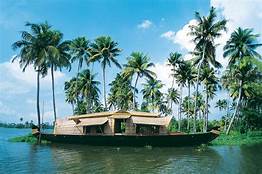Published on: October 13, 2021

COVID -19 & TOURISM SECTOR
COVID -19 & TOURISM SECTOR

The Indian tourism and hospitality sector were adversely affected by the COVID-19 pandemic and saw substantial job loss.
IMPACT OF COVID 19
- Media reports suggest Foreign Tourist Arrivals (FTA) in India have come down by about 67 per cent annually, while for domestic tourists, the figure is lower by nearly 40 per cent.
- Information technology, banking/financial services and pharmaceuticals have no doubt felt the sting of the virus, but they are not as dependent on the physical mobility of people, and their comfort with the idea of travel, both of which have been casualties of the current crisis.
- States relying heavily on income from tourism, such as Kerala and Himachal Pradesh, would feel the effects more.
STEPS TAKEN BY INDIA
- The Government of India recently announced financial support for more than 11,000 registered tourist guides/travel and tourism stakeholders.
- Once international travel resumes, the first five lakh tourists will be issued visas free of charge.
- In the pre-pandemic period too, many initiatives were adopted to promote the tourism sector, such as providing e-visas under various categories for people from particular countries, Global Media Campaigns, the Heritage Trail and the Paryatan Parv celebration.
BENEFITS OF TOURISM SECTOR
LESS INVESTMENTS
As per the estimates of the erstwhile Planning Commission, an investment of ₹1 million generates 78 jobs in the tourism sector. In the manufacturing sector, it results in just 18 jobs and in the agriculture sector, 45. The tourism sector, unlike many other sectors, can grow with smaller capital investments and that too without any industrial gestation period.
MULTIPLIER EFFECT OF TRAINING
- There is need to train the workforce in India, so that workers can develop the skills to perform jobs in the travel and tourism sector. The growth in this sector has multiplier effects on income generation as it is employment-intensive with less capital investment.
- The India Skill Report, 2019, estimates the Indian workforce to increase to about 600 million by 2022 from the current 473 million in view of the fourth industrial revolution. The tourism sector will have a major role to play in providing employment opportunities.
WAY FORWARD
- International arrivals have remained comparatively low, at around 9 to 10 million. Thus, there is a need to highlight the significance of public-private partnership to improve infrastructure and tackle the problem of end connectivity, which negatively affect the experiences of international travellers.
- The travel and tourism industry in India is also fragmented, hindering the ability of the sector to achieve its potential. This area needs to be nudged to embrace the digital revolution, so as to promote public-private initiatives, medium and small and sized enterprises’ growth while ensuring that India follows best practices from across the world.
BLOCKCHAIN IN TOURISM
Blockchain
- System of recording information in a way that makes it difficult or impossible to change, hack, or cheat the system.
- Essentially a digital ledger of transactions that is duplicated and distributed across the entire network of computer systems on the blockchain.
- There are examples worldwide on blockchain-based money solutions to kick-start local tourism industries, for instance.
- Blockchain enables the tracking of items through complex supply chains.
- Blockchain ledger coupled with IOT devices for healthcare could have a positive impact on medical tourism

